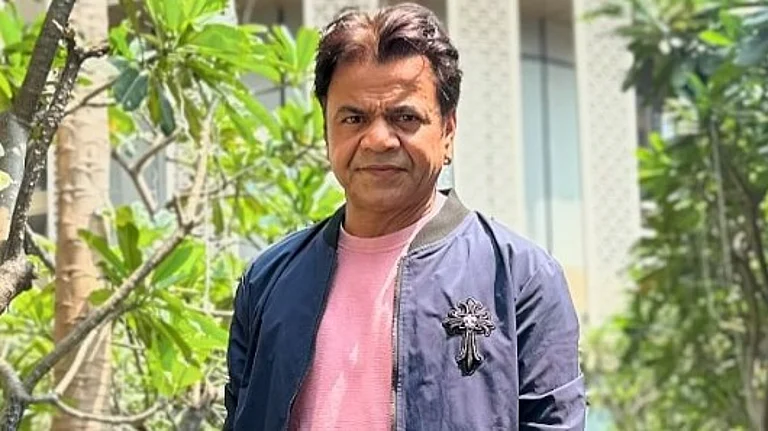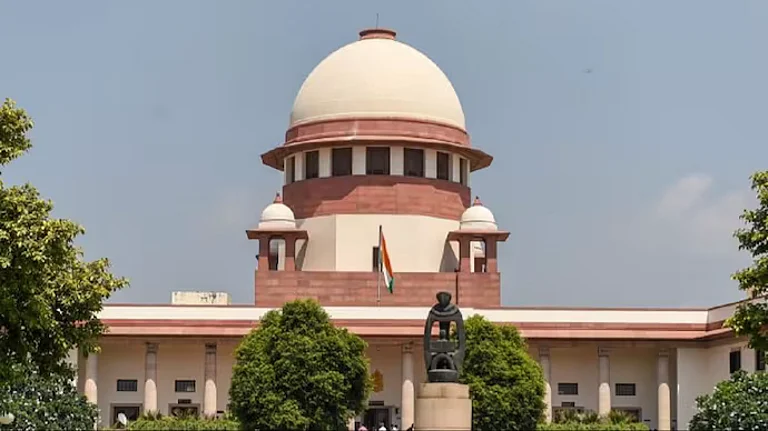Barely two weeks after the Supreme Court granted bail to Delhi Chief Minister Arvind Kejriwal in an alleged corruption case, the top court disregarded former Jharkhand Chief Minister Hemant Soren’s bail plea in an alleged money laundering case on May 22.
Soren was arrested on January 31 by the Enforcement Directorate, on the allegations that he illegally acquired an 8.86-acre plot of land in Ranchi. The ED also alleged that "huge amounts of proceeds of crime" were generated by Soren through manipulation of official records by showing dummy sellers and purchasers in the guise of forged/bogus documents to acquire huge parcels of land having value in crores of rupees.
The Jharkhand Mukti Morcha leader challenged his arrest by the ED and sought interim bail from the Supreme Court in order to campaign for the ongoing Lok Sabha elections – at least till the court delivers its verdict on his plea against his arrest. Soren and his lawyer Kapil Sibal on May 13 referred to the top court's recent order in a money-laundering case involving Delhi Chief Minister Arvind Kejriwal. However, the ED, which opposed Soren’s bail, argued that Kejriwal's interim bail was granted on different circumstances that do not apply to the JMM leader.
Are there any similarities between Kejriwal and Soren’s arrests and bail pleas?
Both Soren and Kejriwal were arrested under Section 19 of the Prevention of Money Laundering Act, 2002 which deals with the ED’s power to arrest. While Soren was arrested for his role in an alleged land scam in January this year, Kejriwal was arrested for his alleged role in the Delhi excise policy case on March 21.
Unlike Kejriwal, Soren wasn’t arrested during the Model Code of Conduct period. Moreover, Soren resigned before he was arrested, whereas Kejriwal continues to remain Delhi’s Chief Minister.
Both Soren and Kejriwal filed a plea for interim bail to campaign in the ongoing Lok Sabha Elections. The ED opposed Soren’s plea by saying that politicians do not enjoy a special status and the right to campaign before the elections is not a fundamental right. This was the same argument the probe agency made while opposing Kejriwal’s bail plea.
On what grounds was Kejriwal granted bail?
In a first of its kind judgment, a Supreme Court bench comprising Justice Khanna and Justice Datta, in an appeal against the orders passed by Delhi High Court upholding Kejriwal’s arrest, ordered his interim release till June 1, while recognising the ongoing Lok Sabha elections as a crucial factor.
It noted: “It is no gain saying (sic) that the general elections to Lok Sabha are the most significant and an important event this year, as it should be in a national election year. Between 650-700 million voters out of an electorate of about 970 million will cast their votes to elect the government of this country for the next five years. General elections supply the vis viva to a democracy.”
The court noted that although questions over the legality of Kejriwal's arrest were pending before it, his status as the leader of a national party justified the “holistic and libertarian view”.
The Supreme Court also noted that courts take into consideration the “peculiarities associated with a person while granting bail, and to ignore the same would be iniquitous.” While it did not mention these ‘peculiarities’ in detail, the Court noted that Kejriwal’s situation is not comparable “with the harvesting of crops or plea to look after business affairs.”
Why are the same bail grounds not being applied to Soren’s plea?
Although Soren’s case came up in the Supreme Court on May 13 in front of the same bench comprising Justice Khanna and Justice Datta, the court posted the matter for hearing on May 17 in order to give the Enforcement Directorate the opportunity to respond to Soren’s plea.
On May 17, the bench refused to consider Soren’s plea for interim bail and posted the matter for May 21 before a vacation bench comprising Datta and Justice Satish Chandra Sharma.
Today, while pulling up Soren and his counsel, the vacation bench observed that the facts of Kejriwal’s case and that of the JMM leader’s case are different. When Arvind Kejriwal was granted interim bail on May 10, he had not sought regular bail from a trial court, nor had there been any judicial order of cognisance against him in the Delhi excise policy case, the bench pointed out.
In contrast, a Jharkhand trial court had taken cognisance of the offences under the PMLA, relying on prima facie incriminating materials against Hemant Soren, and rejected his bail plea on May 13, the bench observed.
Why did the top court pull up Soren and his counsel?
The top court on Wednesday pulled up Hemant Soren and his counsel for “suppressing facts” regarding filing of regular bail plea in trial court in the money laundering case.
Further, Justice Datta also questioned Sibal as to why none of the petitions mentioned the cognisance taken by the special court. Sibal then tried to defend Soren saying he is in custody and does not have any knowledge about the petitions being filed in courts, to which the court remarked: “He is not a layman.”
This prompted the JMM leader to withdraw his petition challenging arrest by the ED. Hemant Soren will now not be able to campaign for the ongoing Lok Sabha elections.




























